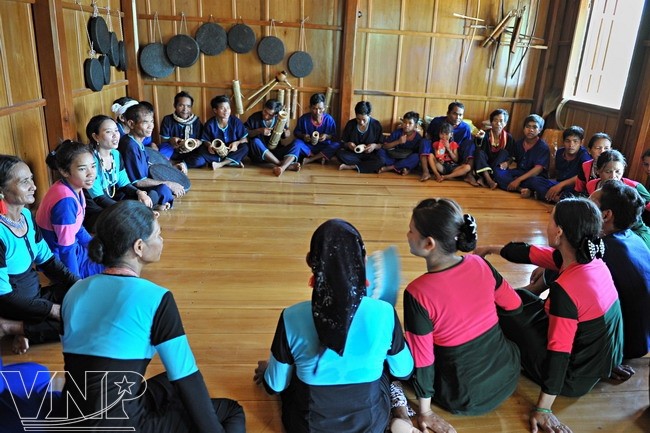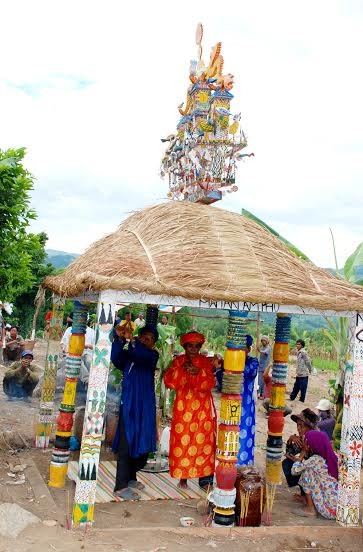(VOVworld) – The Raglai live on the eastern side of the Truong Son range, mainly in Khanh Hoa and Ninh Thuan province. Raglai people have lived in harmony with nature and developed unique cultural values.

On lull time after harvest, Raglai people gather to sing traditional songs and tell epics of the group. |
Raglai people live in deep valleys surrounded by high mountains. They use simple tools like axes, scythes, and digging sticks to do farm work and raise buffaloes, pigs, chickens, and ducks.
In the past, they only used domestic animals for worshiping ceremonies. Now they sell or trade animals and also use them for food. Raglai people are manually dexterous and inventive. They weave several types of rattan and bamboo containers, and have invented some unique musical instruments including the Chapi and the lithophone. Mau Quoc Tien is a researcher of the Raglai culture and people. “The Raglai share some cultural similarities with other ethnic groups in the Central Highlands, but have developed their own identity. While other ethnic groups lived a nomadic life, burned forests to make terraced fields, and hunted wild animals, Raglai people lived on land cultivated by their ancestors. They didn’t hunt elephants and tigers. Raglai communities have abided by the law protecting forests and the environment.”
The long thatched houses of the Raglai are traditionally built on a mountain side, near a spring. Normally 3 or 4 generations live together in one house. A traditional long house is protected by a strong fence with one or two gates. Every house has a bamboo water pipe carrying spring water to the house for daily use.
 |
Funeral observances of the Raglai
|
In the past Raglai men wore only loincloths. Now they wear shirts and pants. Women wear dresses. Women love to wear necklaces, bracelets, and bronze and silver earrings.
The Raglai are matriarchal. After the wedding, a man becomes the key labor for the wife’s family, but major decisions are made by the wife’s family. Children take their mother’s family name and only daughters have the right of inheritance.
The Raglai are polytheists. They take the names of mountains, rocks, trees, or animals as their family name and consider them their guardian angels. Giang is the God of heaven, alongside mountain and forest genies, and Shen Nong.
The Raglai believe that after death the soul continues living in another world. People share their possessions with the dead - vases, gongs, dried gourds, and papooses, but break them and place them beside the grave. Researcher Mau Quoc Tien elaborates: “The Raglai uphold an old custom of worshiping the deceased. The living are responsible for funeral observances and showing their continuing respect for the dead.”
The Raglai have a rich spiritual life that includes epics, legends, fairy tales, and folk songs reflecting their customs, work, struggle against wild animals and natural disasters, and love for their land.